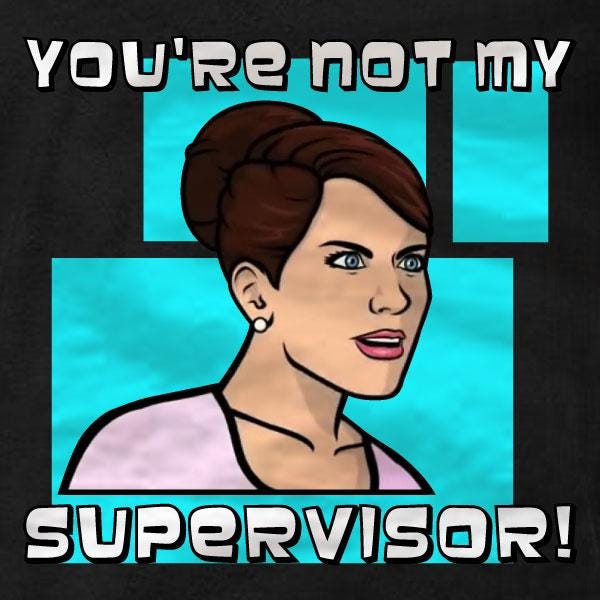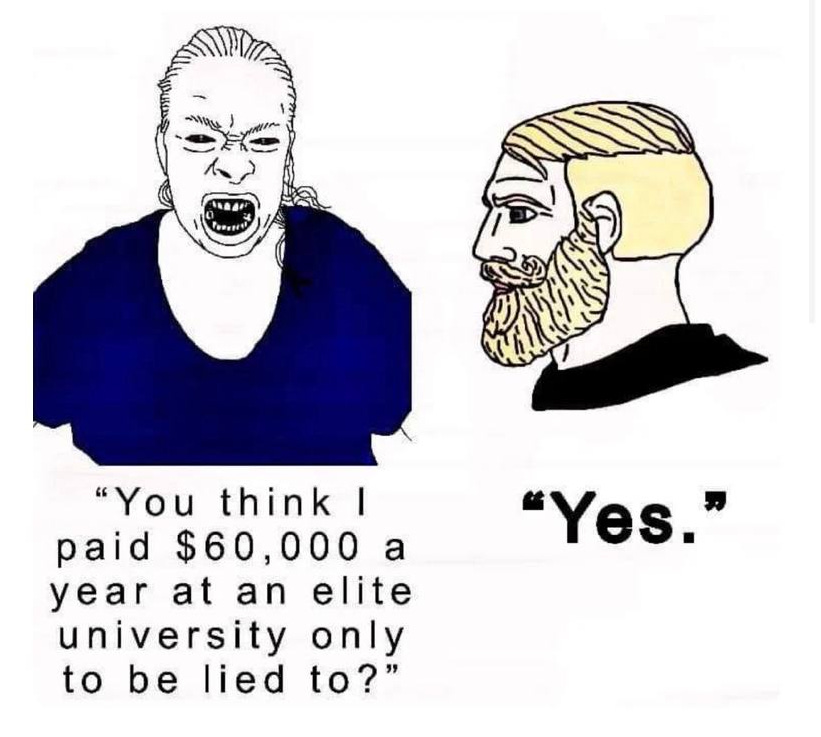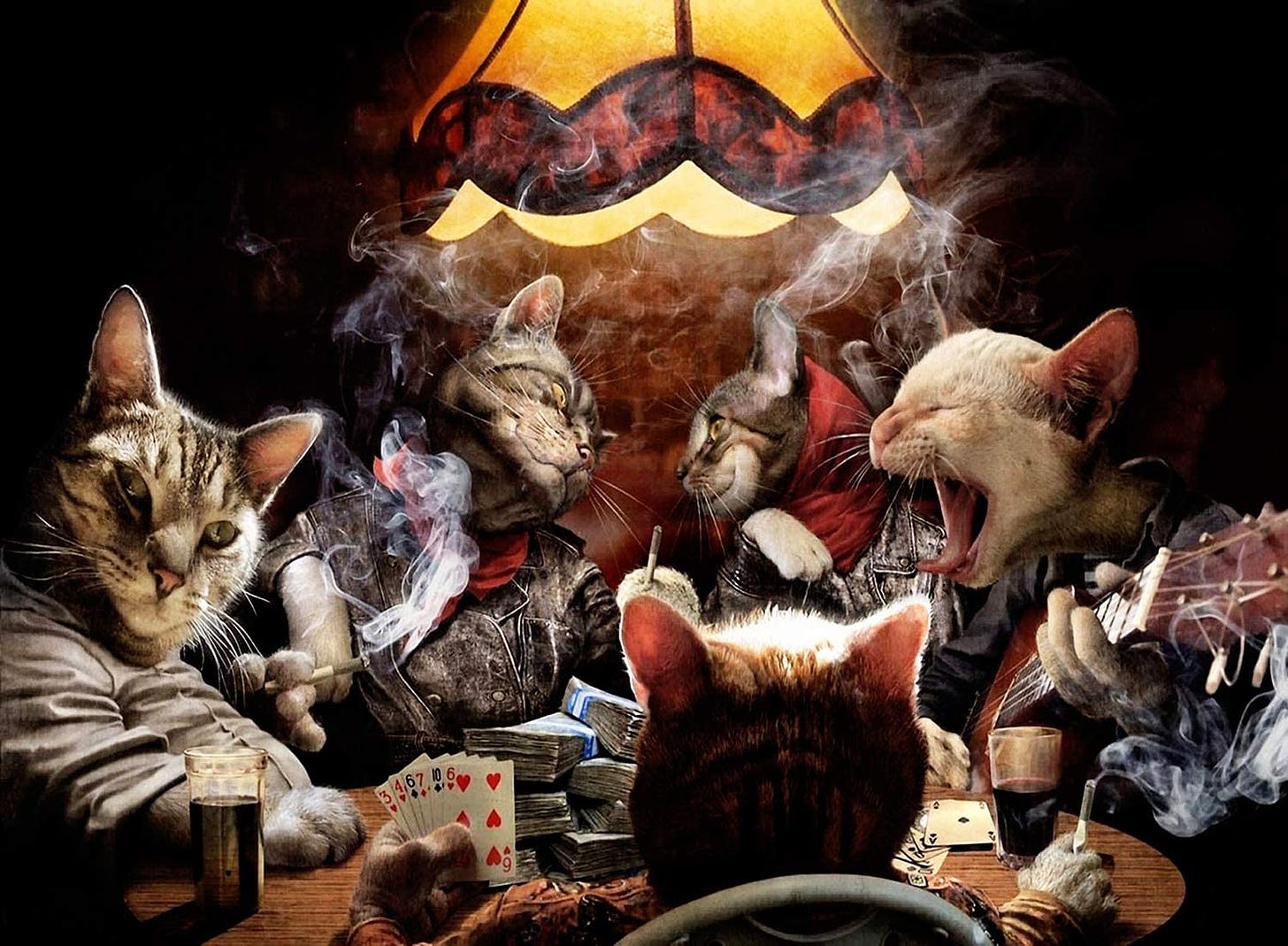newfound gatopal™ sai medi with whom i have enjoyed a number of interesting conversations of late raises a fun question here:
indeed, why should one seeking knowledge or enlightenment prefer the output of a curated clerisy of “truthiness adjudicators” who monopolize media as opposed to grazing widely and taking truth where one finds it?
what drives this overt bias against reasoning and weighing evidence for oneself and the hectoring admonition to “trust the experts”?
i mean, it’s easy to see how those who lay claim to “expertise” would be tempted into such twaddle as this is merely practical application of the doctrine of “where you stand depends upon where you sit” and when MIT science finds itself challenged, they blame internet cats (among other notorious ne’er do wells) for daring to make scientific inquiry a practice instead of an institution and claim for the august halls of university some special right as champions and determinants of “the $cience” while trying not to look too guilty about all the grant grubbing.
hilarious and misguided though it may be, that’s just self-interest talking and desperate desire to hide woo-woo. and that’s simple enough to understand.
guilds always protect guild privilege.
but what of those who want to follow them, to read them, and to grant them monopoly?
what are they getting out of this?
cui bono?
interestingly enough, i suspect that while this also serves self-interest, it also serves something even more profound: self-preservation.
many people have ideas, but those who become the more committed of the zealots or dogmatists often become their ideas. they internalize external canon and doctrine to the point of allegiance as identity. they quite literally are their beliefs and affiliations and have frequently come to such choices without much in the way of reflection or assessment. more often than not, it’s predominantly tribal.
this creates the dangerous situation of someone who not only holds beliefs uncritically but experiences challenge to them as personal attack on self and surrogate family.
now consider what follows from this:
when one has woven tenets of dogmatic belief into the very warp and weft of personal and societal identity and seeks above all else to avoid allowing such foundational devotions to be challenged, what could elicit more fear than ideas like free thought or free debate?
it must feel like erasure.
it is no coincidence that the cornerstone of so many of the current cathedrals of consensus and compliance lies in a foundation of censorship and lexicographical and semiotic suppression. words and symbols mean what we say they do and we posses monopoly on minting our own and monopsony on interpreting yours.
it’s a self defense mechanism.
half the battle in “keeping the fabulism fabulous” is making sure that nobody gets to call anything by its real name because names have power to make and unmake if not that which is objectively real then at least that which passes for consensus reality.
and if my self-conception is founded upon the doctrinal ascendance of that into which i have immersed myself, then i experience your desire to question that ascendancy or the rightness of my adopted ideology as personal threat.
your freedom oppresses me.
and we can’t have that, can we?
it’s worth noting that this issue extends far beyond just media. any set of credential or curriculum, cathedral or clubhouse will do as long as you believe and have made devotion to that belief into the marrow and integument of self.
i’m sure you’ve all seen it.
and it’s rarely pretty or pleasant, is it?
and devotion to all “fringe” or “non mainstream” media or ideas can be just as bad for the nature of this malady is content agnostic: anyone who makes identify of ideas will find themselves so afflicted. and this is a consummation devoutly to be avoided for this is the path to the weaponization of clown world and the shouting down of any who would dare to even name to say nothing of actually trying to end the circus.
and that way lies a life of persecution fantasy, misery, and madness.
seek instead to be first a person and whole and complete upon your own terms. this person may have ideas, but a person that has ideas may, unlike one who inhabits their ideas, change their mind, hear and evaluate other views, and engage with and even befriend those whose views are not like to their own. and honestly, this is a lot of the really best stuff, for these are the precincts where inquiry and exploration reside and the friendships from which your ideas will grow and mature and flower (or perhaps, at need, die that new ones may grow in their place).
this is the pathway to a bigger, better, and more replete essentia.
to limit oneself to the narrowly dogmatic is to stack the deck of life against yourself.
get some better cards.











Damn, I didn't know I was an idiot. Guess that's the way idiocy works. When I discovered Substack earlier this year I thought I found pure gold. People with brains doing real thinking, and most importantly, questioning. This idiot is sticking around as long as they'll let me.
In the Wizard of Oz, the Wizard grants recognition to the Scarecrow, Tin Man and Lion after they demonstrated their virtues. The Scarecrow had the education, but not the diploma. In our society, it’s the opposite. “Experts” get their credentials first without mastery of anything. Then, they wage war against anything or anyone who might expose them. Here’s a test: how many people lecturing us on the climate crisis know anything at all about the climate? How many of the “my mask protects you” crowd had read anything other than the curated information that El Gato writes about? The answer is virtually none. It’s not science, knowledge or expertise. It is Joseph Goebbels.